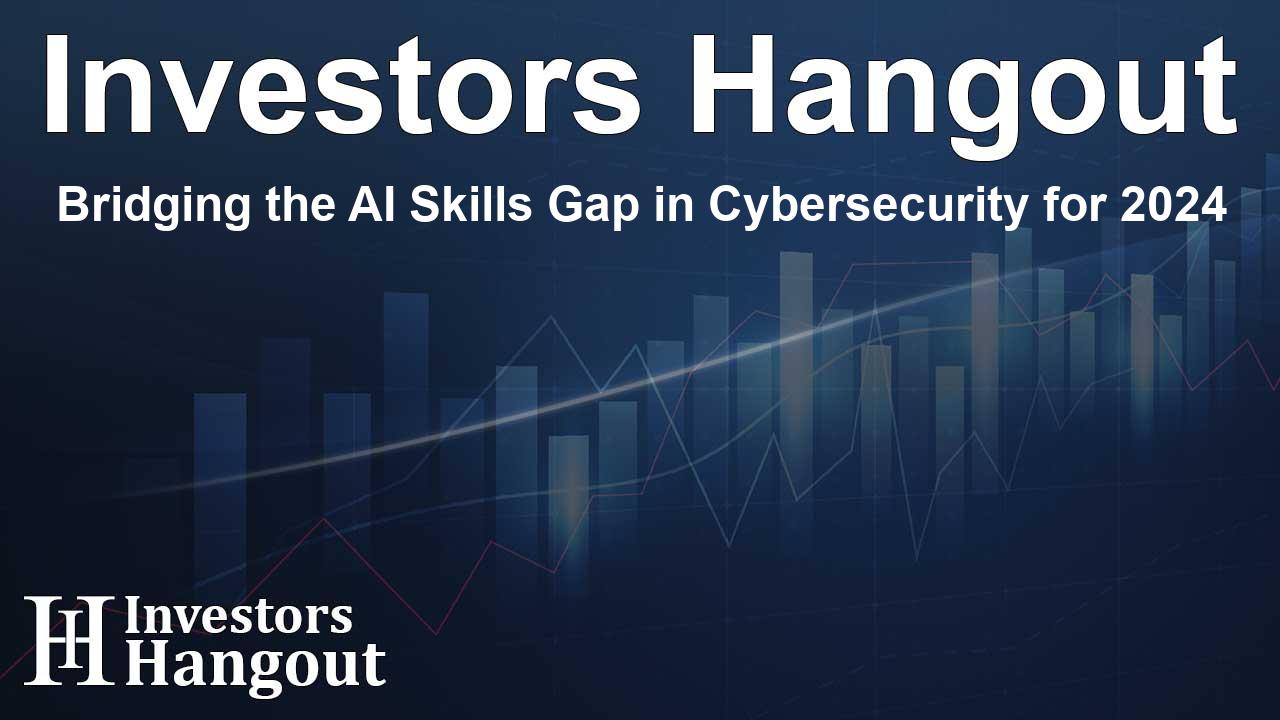Bridging the AI Skills Gap in Cybersecurity for 2024

Understanding the State of Security in the Digital Age
In today's complex digital landscape, the importance of cybersecurity cannot be overstated. O'Reilly has recently published its 2024 State of Security Survey, revealing critical insights into the ongoing challenges organizations face in protecting their digital assets. This comprehensive study sheds light on the pressing need for specialized skills in the face of ever-evolving cyber threats.
AI Skills Gap: A Growing Concern
One of the striking findings from the survey is the alarming AI security skills gap. A significant 33.9% of technology professionals reported a severe shortage of skills related to AI security, particularly concerning new vulnerabilities such as prompt injection. As artificial intelligence becomes increasingly integrated into business operations, the gap in necessary training and expertise becomes a pressing issue that organizations must address.
The Impact of AI on Security Measures
As AI adoption accelerates across various sectors, the implications for cybersecurity are profound. Companies must not only understand the technology but also equip their workforce with the skills to manage associated risks effectively. This calls for a more focused approach to training programs that emphasize AI security and the unique challenges it presents.
Cloud Security Expertise: An Ongoing Challenge
Cloud technology has transformed how businesses operate, yet 38.9% of respondents indicated a critical lack of cloud security expertise. This highlights a significant skills shortage that could leave organizations vulnerable during their ongoing cloud migrations. As businesses shift toward cloud platforms, ensuring secure environments remains a priority.
Security Automation: The Key to Enhanced Defenses
Looking to the future, implementing AI-enabled security tools is viewed as the top priority for companies, with 34.4% emphasizing its importance. Alongside this, security automation ranks closely behind, with 28.2% of respondents highlighting automation as essential for bolstering cybersecurity measures. The move toward automation illustrates a collective effort to enhance defenses against sophisticated threats while managing workforce limitations.
Trends Reshaping the Security Landscape
The survey also unveiled several critical trends affecting cybersecurity practices today:
- Phishing Remains a Significant Threat: Despite advancements in technology, 55.4% of tech professionals pointed to phishing as the predominant security concern. This enduring threat underscores the need for comprehensive training programs aimed at mitigating such risks.
- Implementation of Security Measures: An impressive 88.1% of respondents have adopted multifactor authentication, while 60.1% have employed endpoint security measures, reflecting a proactive approach toward enhancing security measures.
- Certification Discrepancies: Despite the requirement for certifications in hiring practices, a considerable 40.8% of security team members are still without certifications, with incident responders facing the most significant gaps. This inconsistency highlights the need for better certification protocols and training.
- Continuous Learning is Essential: A whopping 80.7% of employers mandate ongoing education for security professionals, emphasizing the need for training that evolves with the threat landscape.
- Demand for Security Awareness Training: The survey revealed that 40.1% of professionals identified enhanced security awareness training for all employees as vital to improving an organization's security posture.
According to Laura Baldwin, President of O'Reilly, “Our findings reveal a dramatic shift in the security landscape. Cyber threats are no longer just an IT issue; they have become a critical business concern. While certifications like CISSP are important, the most pressing skills gaps are in areas like cloud and AI security.”
Conclusion: The Path Forward for Organizations
As organizations navigate the complex terrain of cybersecurity, it is imperative to prioritize the upskilling of current employees and invest in specialized training that addresses the unique challenges posed by AI and cloud security. A workforce that is knowledgeable and prepared will not only help mitigate risks but also foster a more secure digital environment.
Frequently Asked Questions
What is the main finding of the O'Reilly 2024 State of Security Survey?
The survey reveals a critical AI security skills gap, highlighting the urgent need for specialized training as cyber threats evolve.
What percentage of tech professionals report a lack of AI security skills?
33.9% of technology professionals indicate a shortage of AI security skills, especially regarding emerging vulnerabilities.
How has cloud security been addressed?
38.9% of respondents noted cloud security as a significant area of concern, pointing to insufficient expertise in securing cloud environments.
Why is security automation becoming more important?
With 34.4% prioritizing AI-enabled tools, automation is seen as crucial for enhancing cybersecurity defenses amid increasing threat complexity.
What measures are being implemented for security training?
Employers are mandating continuous education for security personnel, emphasizing the importance of staying up-to-date in a rapidly changing security landscape.
About Investors Hangout
Investors Hangout is a leading online stock forum for financial discussion and learning, offering a wide range of free tools and resources. It draws in traders of all levels, who exchange market knowledge, investigate trading tactics, and keep an eye on industry developments in real time. Featuring financial articles, stock message boards, quotes, charts, company profiles, and live news updates. Through cooperative learning and a wealth of informational resources, it helps users from novices creating their first portfolios to experts honing their techniques. Join Investors Hangout today: https://investorshangout.com/
Disclaimer: The content of this article is solely for general informational purposes only; it does not represent legal, financial, or investment advice. Investors Hangout does not offer financial advice; the author is not a licensed financial advisor. Consult a qualified advisor before making any financial or investment decisions based on this article. The author's interpretation of publicly available data shapes the opinions presented here; as a result, they should not be taken as advice to purchase, sell, or hold any securities mentioned or any other investments. The author does not guarantee the accuracy, completeness, or timeliness of any material, providing it "as is." Information and market conditions may change; past performance is not indicative of future outcomes. If any of the material offered here is inaccurate, please contact us for corrections.